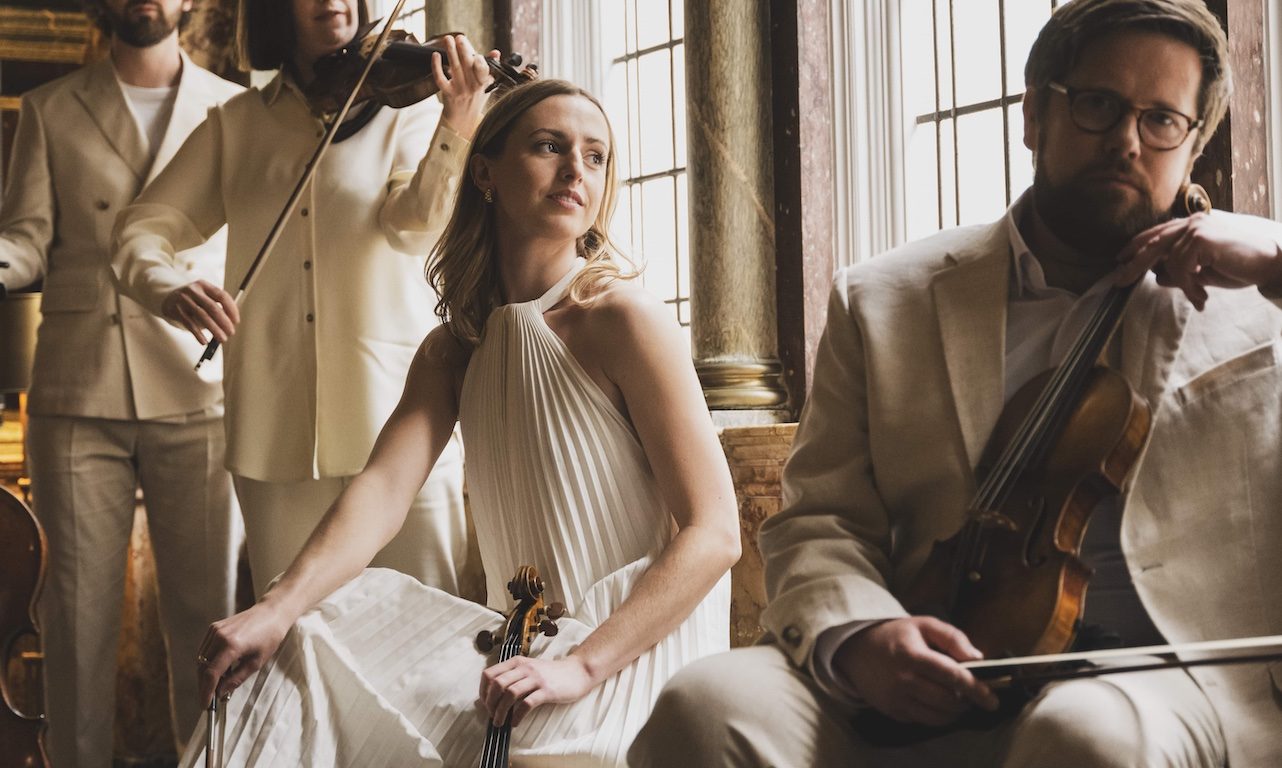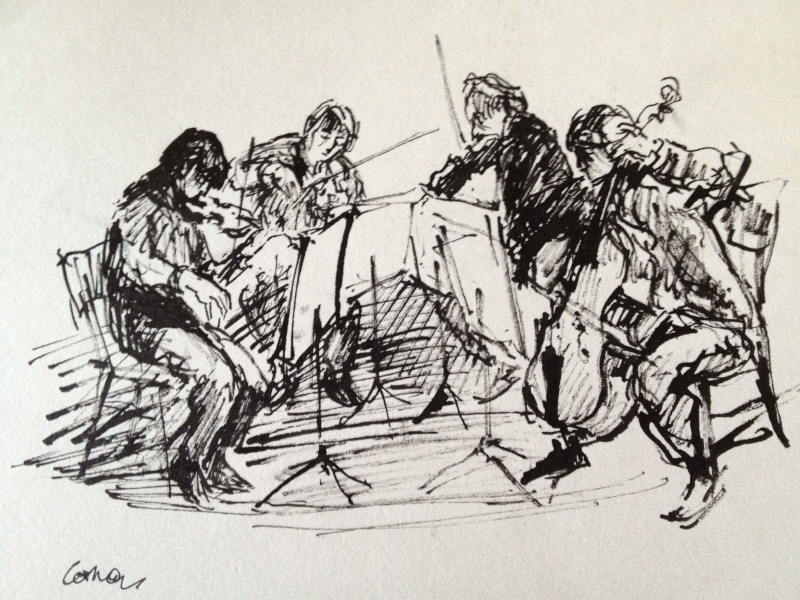
Castalian String Quartet’s Oxford residency extended for further three years

A renowned string quartet whose performances have been described as ‘full of poetry, joy and sorrow’ will be continuing their residency at Oxford University thanks to renewed support from the Cosman Keller Art & Music Trust.
The Castalian String Quartet became the Faculty of Music’s inaugural Hans Keller String Quartet in Residence in 2021. The appointment has seen them deliver an annual concert series, undertake a range of diverse creative projects and feed into education and outreach initiatives aimed at inspiring the next generation of performers and composers. A new gift from the trust will now enable their residency to continue until 2027.
John Fulljames, Director of the University’s Cultural Programme, said: ‘We’re delighted that support from the Cosman Keller Art & Music Trust is enabling the Castalians’ Oxford residency to continue. Our partnership with the Castalians enriches the chamber music programme at Oxford, supporting research, teaching and student experience and enables audiences from across the city to enjoy the Castalians’ world-class performances.’
Deepening engagement with string quartet music in Oxford
Since forming in 2011 the Castalian String Quartet has emerged as one of the most exciting and in-demand quartets on the world stage. They were named Young Artist of the Year by the Royal Philharmonic Society in 2019 and released their first studio recording, Between Two Worlds, to five-star reviews in 2022. Several prominent composers have written works specifically for the Castalians which have then been performed in Oxford, including Mark-Anthony Turnage’s Awake and Charlotte Bray’s Ungrievable Lives.
Audiences will have the chance to hear the quartet perform live in Oxford as part of their extended residency. The concerts, which will form part of the Cultural Programme, will initially take place in venues around the city before moving to the Stephen A. Schwarzman Centre for the Humanities in 2026. The new centre will feature several state-of-the-art performance spaces, including a 500-seat concert hall. Targeted activities and events will also enable new audiences from beyond the traditional concert setting to participate and hear the quartet perform.
As well as playing publicly, the quartet will continue to offer coaching and composition workshops for Oxford students and other young performers in the local area. They will also support academic research taking place within the Faculty of Music, including through pre-concert talks and seminars that cover topics relating to the work of the faculty’s academics.
Advancing art and music education
The Hans Keller String Quartet Residency was established in memory of the musician, writer and broadcaster Hans Keller (1919-1985), for whom the string quartet was the most purely musical form of composition. Keller made a significant contribution to the development of string quartet music in the second half of the twentieth century, having coached many of the leading British ensembles of the time, inspired composers to write in this form, and broadened and educated the audience for chamber music through his work at the BBC.
His wife, the artist Milein Cosman (1921-2017), established the Cosman Keller Art & Music Trust in 2006. Her aim was to advance art and music education, support musicians and artists, and preserve and promote her own work and that of her husband.

Hans Keller playing viola in string quartet. Drawing by Milein Cosman © The Cosman Keller Art & Music Trust
Current chair of the trust Alison Garnham said: ‘The Castalian String Quartet has exactly the kind of deeply individual, intimate and improvisatory quality to their playing that Keller most admired, and we are delighted to be helping bring their revelatory artistry to more young musicians.’
The Castalian String Quartet’s first concert of the 2024/25 season will take place on Saturday 19 October as part of the Oxford International Song Festival, with further events scheduled for 26 November, 30 January 2025 and 9 May 2025.
